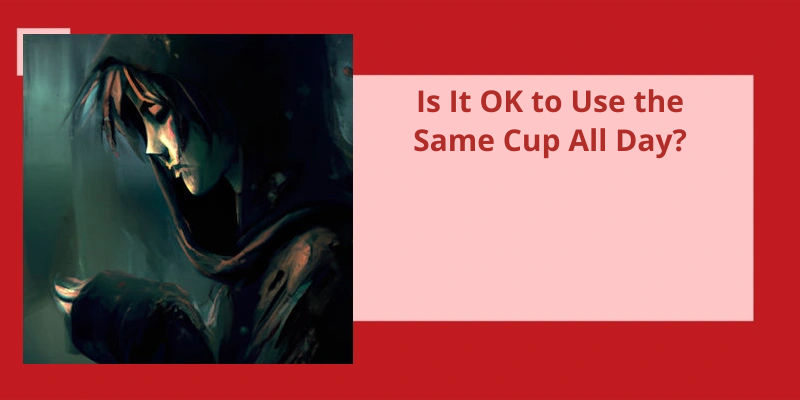When someone says "I don't matter," it's important to understand the true meaning behind those words. This phrase can evoke various emotions and interpretations, and it's not uncommon for people to use it when feeling unimportant, underestimated, and unsupported. Those four words can be the manifestation of a deeper issue that may require immediate attention, as they carry the weight of a feeling of insignificance, worthlessness, and neglect. It's crucial not to mistake "I don't matter" for "I don't care," as they’re vastly different statements and can lead to further misunderstanding of the situation. Therefore, when someone expresses themselves in this way, it's essential to listen, validate their feelings, and provide support to help them overcome this distressing mindset.
What Does Doesn’t Not Matter Mean?
This phrase can be used in a variety of situations, from trivial matters to more serious ones. For example, if someone asks you what you’d like for dinner and you say “it doesn’t matter,” you’re indicating that any option is fine with you. On the other hand, if someone asks you if you want to attend an event that you aren’t interested in, you can also say “it doesn’t matter” to politely decline.
For example, if a group is deciding between two different plans of action and someone says “it doesn’t matter which one we choose,” they may be suggesting that both options will have a similar result.
In some cases, people may use this phrase as a way to avoid taking responsibility or addressing a problem. For example, if someone makes a mistake and they respond with “it doesn’t matter,” they may be disregarding the impact of their actions and failing to make amends.
However, it’s important to use it appropriately and thoughtfully, as it can also come across as dismissive or unhelpful in certain contexts. Ultimately, the key is to consider the impact that our words and actions have on others and to approach situations with empathy and awareness.
How to Respond to “Doesn’t Matter”
- Don’t dismiss the statement
- Clarify what does matter
- Show empathy
- Uncover the root issue
- Offer options
- Encourage communication
- Move forward
Communication plays a crucial role in any relationship, and understanding what different statements mean is essential to avoid any misinterpretations. When a girl says, “it doesn’t matter,” it can often be a sign of underlying emotional distress. So, it’s crucial to pay attention to the situation at hand and the context before arriving at any conclusions. Let’s delve deeper into what it could signify when someone says it doesn’t matter and how to handle such a situation with empathy.
What Does It Mean When a Girl Says It Doesn’t Matter?
It could be that the girl in question is trying to let go of the expectations and pressure she’s placed on herself regarding certain events or situations. By saying “it doesn’t matter,” she’s attempting to release herself from the stress she might be experiencing. Perhaps she’s been overthinking and analyzing things, and wants to take a step back from overthinking.
Another reason why a girl might say “it doesn’t matter” is because she wants to avoid conflict. If a situation arises that could potentially lead to an argument or disagreement, saying “it doesn’t matter” can be a way to diffuse the situation. She might be trying to show that she isn’t interested in the debate, or that it isn’t worth fighting over. This could be a sign that she’s trying to maintain the peace, and prioritize harmony in her relationships.
The Potential Negative Consequences of Constantly Avoiding Conflict by Saying “It Doesn’t Matter”
Avoiding conflict by saying “it doesn’t matter” can have negative consequences in the long run. This behavior can lead to unresolved issues and build up resentment over time. It can also set a precedent for others to dismiss their own feelings and opinions. It’s important to address conflicts in a constructive manner in order to maintain healthy relationships and a positive environment.
The use of language can be a complex matter, full of little nuances that can make all the difference in meaning. One such example is the difference between “no matter” and “does not matter”. While the two phrases may seem interchangeable, there are subtle differences that can affect the context in which they’re used. For instance, “it doesn’t matter” can stand alone as a sentence, while “no matter” usually needs to be paired with another phrase or clause to make sense.
Is It No Matter or Does Not Matter?
The usage of the phrases “no matter” and “does not matter” can be quite complex. While both convey similar sentiments, they’ve some differences in meaning and usage. For instance, “no matter” is often used to express universality, emphasizing that a particular situation or statement applies to everyone or everything, regardless of differences in circumstances. On the other hand, “does not matter” is often used to denote a lack of significance or relevance.
It’s important to note that both phrases are often used interchangeably, and the distinction between them may not always be clear. Alternatively, the phrase “does not matter” in the sentence “It doesn’t matter if I finish the project today or tomorrow” suggests that the timing of the projects completion has little relevance.
For instance, saying “It doesn’t matter to me what we’ve for dinner” conveys a stronger sense of disinterest than saying “No matter what we’ve for dinner, it won’t be a big deal.”. In contrast, using “no matter” in a sentence like “No matter how good the food is, I won’t eat it if it’s too spicy” emphasizes a universal principle about personal taste.
The key is to use them appropriately and ensure that the intended message is clear to the listener. As with all language usage, practice and familiarity are essential for mastering these phrases and using them effectively in communication.
In everyday conversations, it’s common to encounter statements that don’t require a further response. Responding to such statements can sometimes feel awkward or unnecessary. One such statement is, “it doesn’t matter.” So, how do you respond to this statement? The most appropriate response is simply to acknowledge the comment and move on.
How Do You Respond to It Doesn’t Matter?
When someone tells you that it doesn’t matter, it can be frustrating and confusing. It can make you feel like your ideas and opinions aren’t valued, leading to feelings of discouragement. However, it’s important to understand that sometimes, things really don’t matter in the grand scheme of things. Some things are simply not worth stressing over or investing too much thought and energy into.
One way to respond to someone who tells you that it doesn’t matter is to take it as a cue to move on and let go. If you find yourself getting worked up over something minor, acknowledge that it may not be worth getting upset about and move on. Try to redirect your attention and energy towards other things that are more important or meaningful to you.
Another way to respond to it doesn’t matter is to take it as an opportunity to reflect on the situation as a whole. Think about why the other person may feel that way and consider if there’s any truth or validity to their perspective. It can be helpful to step back and take a more objective look at the situation, rather than getting caught up in your own emotions or opinions.
If you find that it doesn’t matter is a recurring theme in your conversations with someone, it may be worth taking some time to talk openly and honestly about how you feel. Explain why it’s important to you to feel heard and valued, and try to come to a compromise or understanding that works for both of you. Communication is key, and being able to express your thoughts and feelings in a constructive way can help strengthen your relationships.
In some cases, responding with OK, never mind may be the best option. This simple and non-confrontational reply can help diffuse any tension or conflict, allowing you to move on without making the situation worse. Remember, not everything needs to be a big deal, and sometimes it’s better to let things go rather than stir up unnecessary drama.
Responding to it doesn’t matter can be challenging, but it’s important to remember that not everything is worth getting worked up over. Try to stay calm and objective, reflect on the situation, communicate openly and honestly, and know when to simply let things go. By doing so, you can maintain healthy relationships and avoid unnecessary stress and conflict.
Conclusion
In conclusion, the phrase "I don't matter" shouldn’t be taken lightly. It isn’t just a simple statement that one can brush off. This statement holds a deeper meaning; it implies that someone doesn’t hold any worth or significance in the eyes of another person. It’s important to listen and validate the feelings of someone who says this. Moreover, it’s crucial to provide reassurance and support to help them realize their worth and importance. Understanding the difference between "I don't matter," "I don't care," "I don't mind," and "It doesn't matter" is also essential in communication, as they each convey distinct meanings. It’s in human nature to crave significance, and by acknowledging and valuing one another, we can create a world where everyone matters.






